I have two straightforward rules to share with you so that you realize that cardio is highly overrated in the fat loss stages. Cardio is a last-used tool for your progress.
1A LOW INTENSITY
DO NOT DO IT IN EXCESS
2ES COMPLEMENT
WEIGHTS ARE MORE IMPORTANT
You want to improve your body, that is, you are a bodybuilder or fitness or someone interested in having high levels of muscles, we are not sprinting runners. So we must provide our body with that signal, that great signal to maintain that muscle mass that has been so hard for you to gain. Cardio doesn’t have to be a priority in your mini-cut stage.
6THE CHANGES
The changes in these short stages of fat loss have to be minimal since it is too short of stagnating. What if we have to use is a TEST week or a TEST week. It’s pretty simple. First, we have to ignore the first week of the diet due to glycogen, water and other related changes in your diet; this makes that first week a bit “unstable.” So the first week is to see if our calories are correct and make the only adjustments you will make throughout your mini-cutting stage.
7 AFTER
It is essential to know where to locate our mini cut in our progress. Because believe it or not, there is a right way and a wrong way.
I recommend that before your mini-cut stage, you perform a maintenance and training adjustment stage. In short, this is a low-volume training period accompanied by a maintenance calorie intake; this combination prepares you for successful fat loss. It is evident that after your stage of increasing muscle mass, you have acquired so much training volume that it is time to lower it a little and for that, adjust your maintenance calories to analyze what your magic number will be for the mini cut stage. Because you will be in a maintenance stage for a few weeks before your mini cut, you will be in a poor state of fatigue, which means you will be in a much better place to deal with the decrease in calories.
This is also great since you don’t need to do a ton of volume to get an excellent hypertrophic stimulus, so you don’t need super-sets or powerful techniques that pack up a lot of training volume. The great thing about this is that as soon as you finish your mini cut, you can increase the training volume again, and your body will have more gains.
Another option is that you can perform a less aggressive definition once the mini cut is made by reducing your calorie deficit and losing weight at a slower rate, or you can re-enter a muscle-building phase after having lost some fat in your mini cut.
A mini cut is NEVER preceded by a diet period, and I will go to why below.
NOT FOR PEOPLE WITH STRESS
If you have come from a stressful diet period or you have a lot of stress in your life with little rest, I suggest that you do not do this mini cut stage, because in itself it is something very aggressive that will give you a little stress, then do not do it. I see sense for you to come stressed to a stage where you need to be 100% calm and focused.
TO REMEMBER
Mini cuts are short phases of aggressive fat loss
Focus on losing fat and not muscle
Don't change your routine; train like you're gaining muscle
You don't have to be stressed to make a mini cutThe effects of overeating on body composition: the role of macronutrient composition.
According to the International Journal of Exercise Science, “Overfeeding protein or consuming a high protein diet may not result in an increase in body weight or fat mass despite consuming calories that exceed normal or usual intake.”
A surplus of energy is required to maximize skeletal muscle hypertrophy associated with resistance training.
According to “Frontiers in Nutrition,” a surplus of energy is needed for optimal muscle growth with resistance training. It is estimated that up to 2,000 additional calories could be required during the bulking phase, much more than some estimates of 15%.
Bodybuilding and training (gradual reduction of carbohydrates and fats)
During the training phase, you are flexible depending on when the next competition is scheduled. During this phase, the bodybuilder’s diet is all about quality. A high protein intake is maintained, but simple carbohydrates like white rice and pasta are swapped out for more complex carbohydrates like beans and wild rice. The bodybuilder eats up to six times a day, with some eating more often depending on the schedule and length of the workout. The majority of macronutrients should come from whole foods, not meal replacements.
Carbohydrate cycle and bodybuilding
Another method commonly used in a bodybuilding diet is the carbohydrate cycle. The carb cycle is a five-day cycle (in many cases) where carbohydrates are manipulated to take advantage of the high-carb and low-carb benefits. If 250 grams of carbohydrates is the limit on the highest day, carbohydrates will be consumed as follows:
Day 1: 200 g
Day 2: 150 g
Day 3: 100 g
Day 4: 175 g
Day 5: 250 gBodybuilding and weight loss (“cutting”)
If we had to choose the least liked of all the bodybuilding phases, the cutting phase is usually the first. During the out-of-competition season and the training phase, the bodybuilder has been consuming a fairly open menu, but as the time to “cut” approaches, there is a gradual reduction in calories through carbohydrates and fats until the bodybuilder reaches the “cut.” The “cut” is all about reducing the weight of fat and water to bring to the surface the physique you’ve been working on during the previous two phases.
The healthy way to “cut” is through the gradual decrease in carbohydrates and fat as you approach the “cutting” or competition phase. This is the phase where competitive bodybuilders lose what small amount of fat they have and shed water weight to slim the skin and allow muscle structure to show through.
New research shows that consuming more carbohydrates just before competition helps muscles appear fuller and more pronounced. The amount of additional carbohydrates is up for debate. The only natural way to find out is through trial and error.
How is weight loss for a bodybuilder?
The two main weight loss methods for bodybuilders are calorie reduction and water weight loss. Let’s see how each one works.
Diet and bodybuilding
The “cutting” stage just before the competition requires a slow reduction in calorie intake. This is accomplished by reducing carbohydrates and fat. Protein intake remains high, which is helpful for the bodybuilder because protein causes a feeling of fullness.
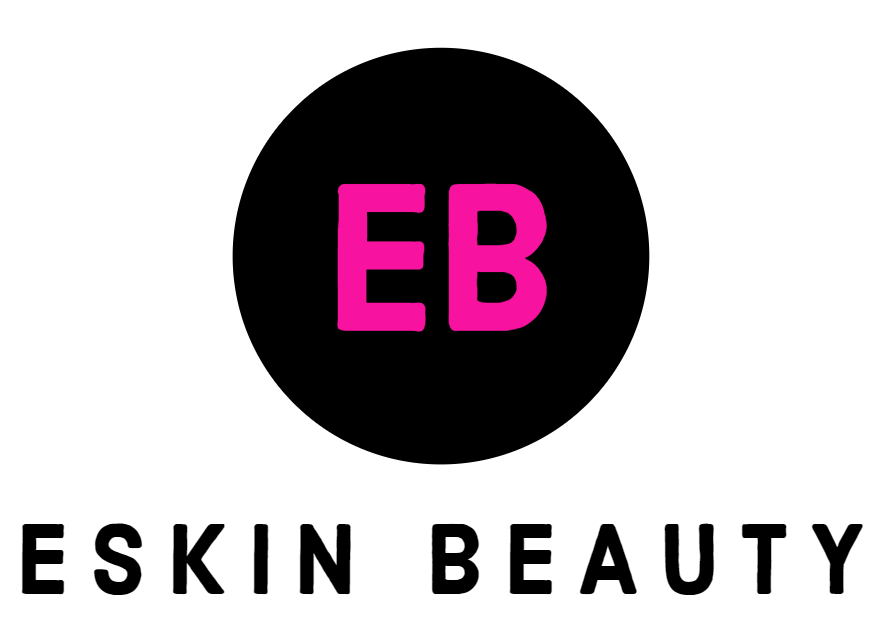




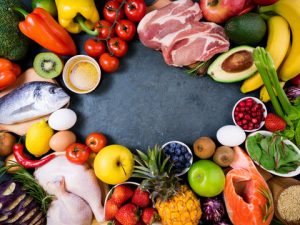
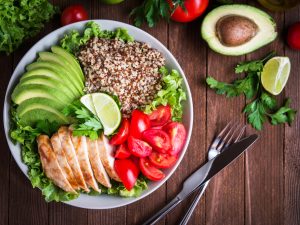

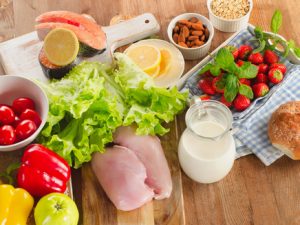






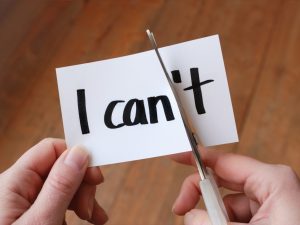



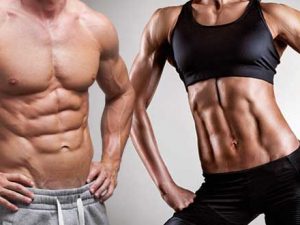
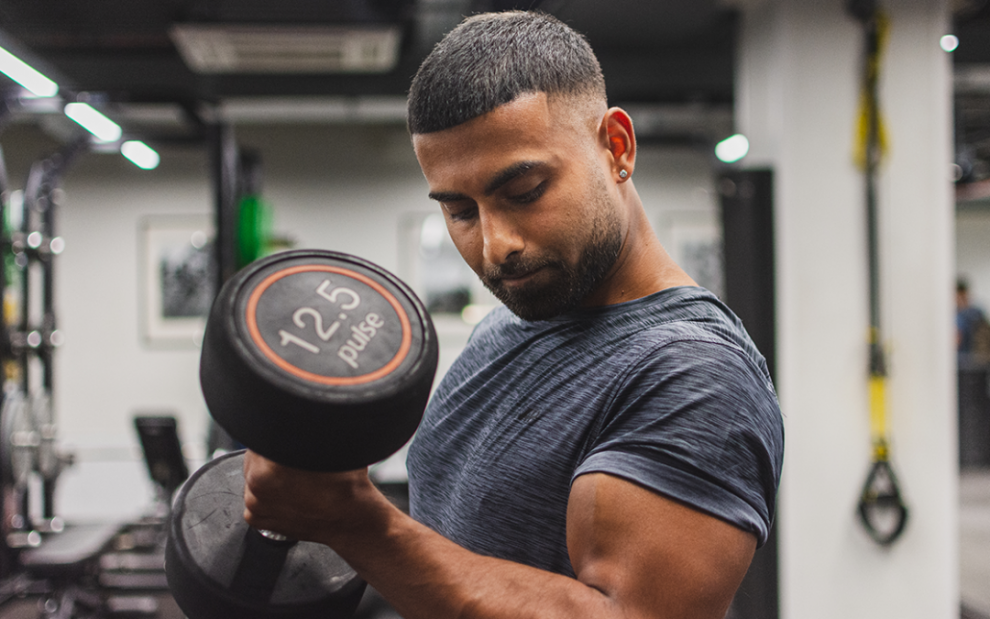









Add Comment